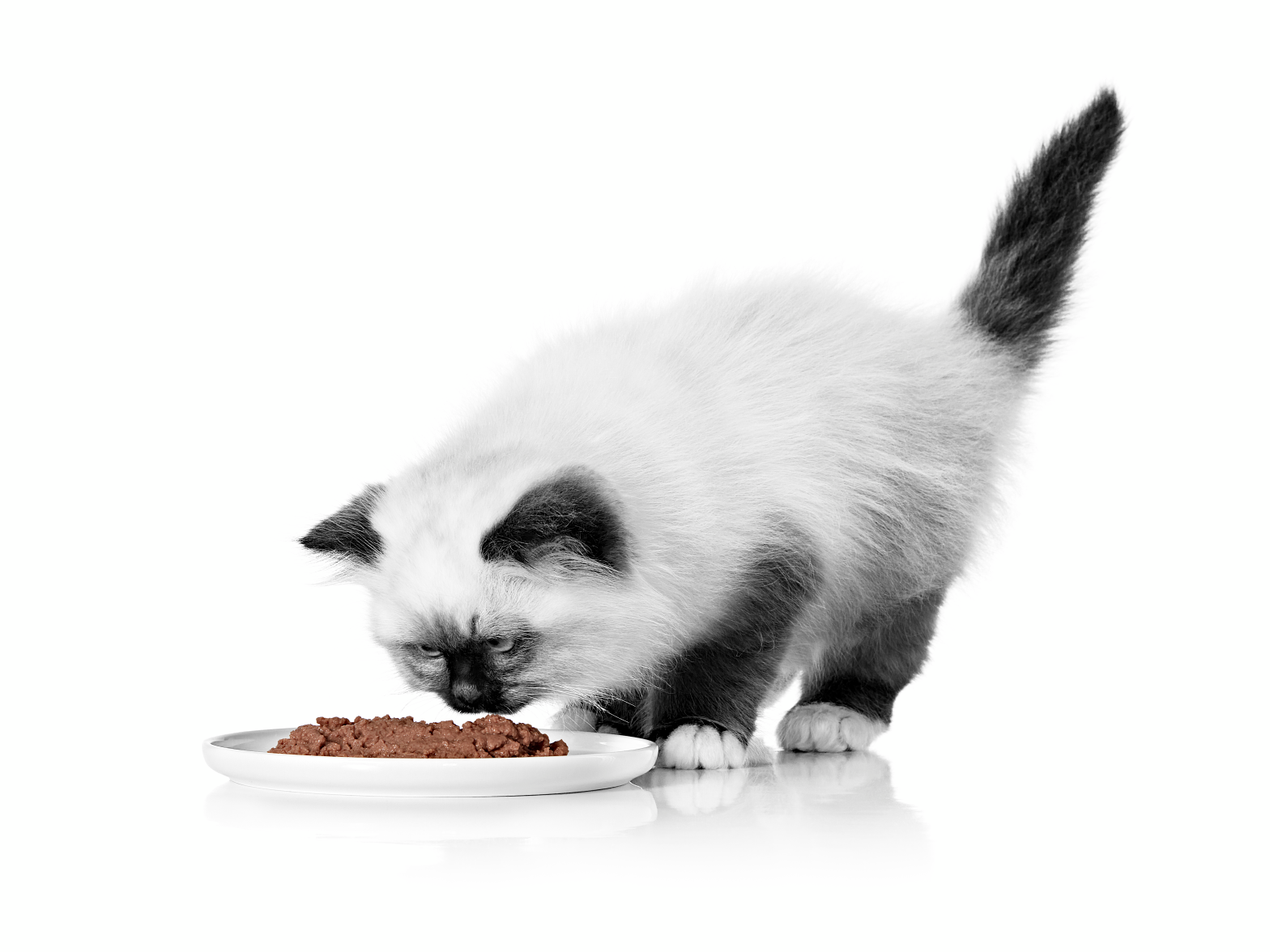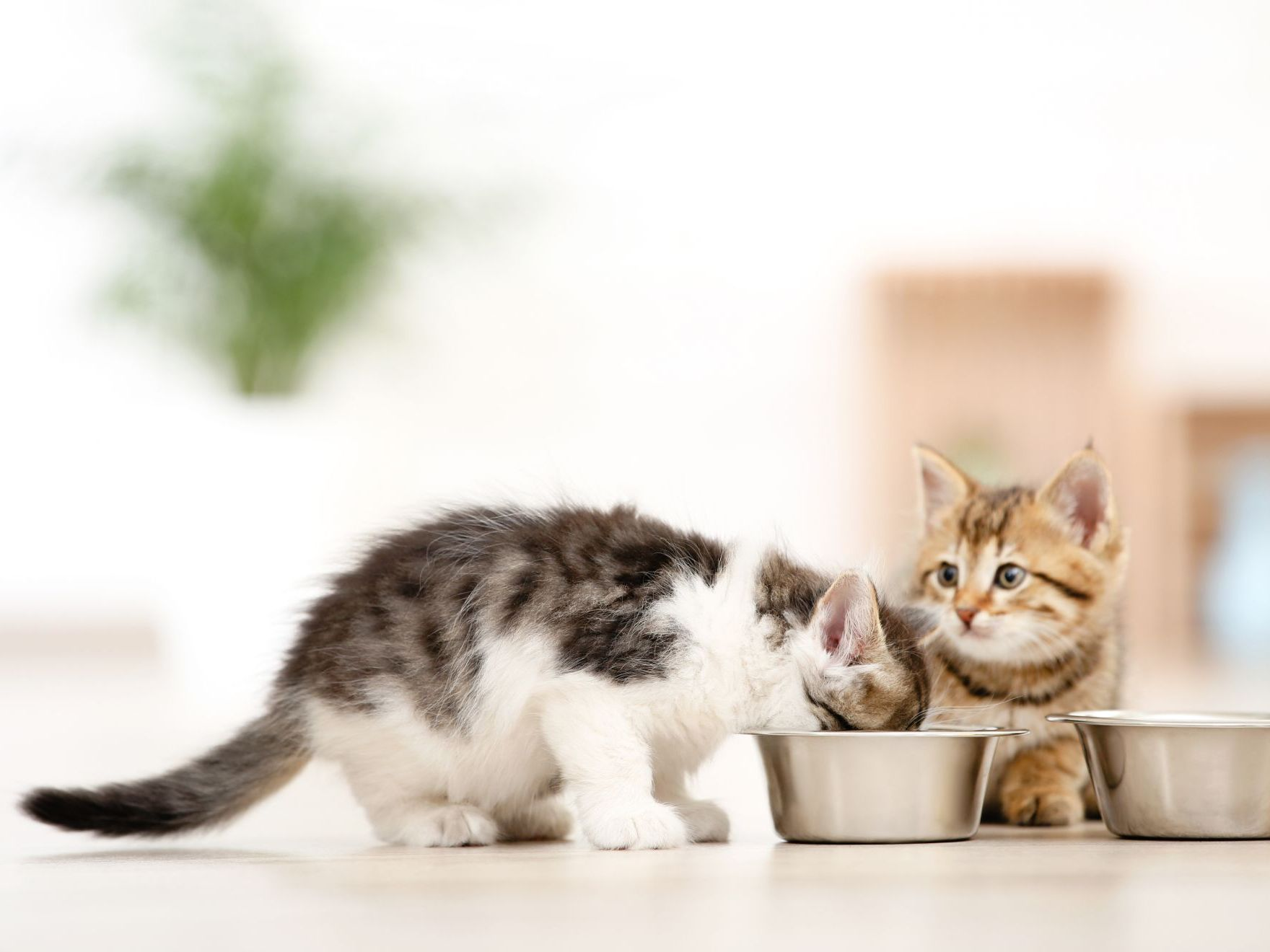
Tracking your kitten’s development and growth stages
In the first few weeks of your kitten’s life, changes take place rapidly. In the weeks after birth, your kitten will undergo rapid physical growth and move through several developmental stages. As their owner, you need to support your kitten’s development, stage by stage, through this vital and exciting early timeline, helping them grow into healthy adult cats.
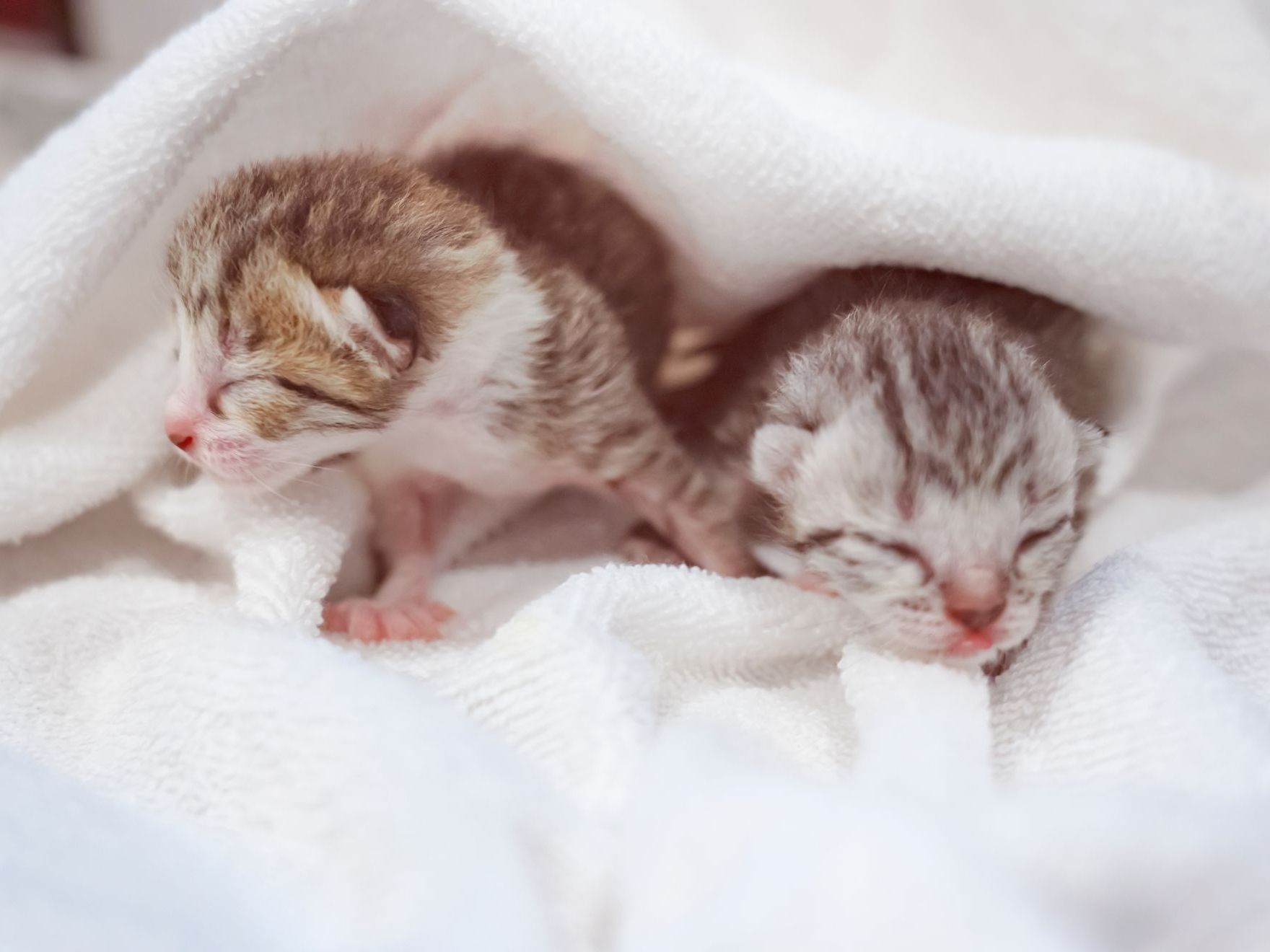
Understanding your kitten’s growth stages
As your new kitten grows, it’s an eye-opening time for both of you.
Your cat’s rate of growth will depend on their breed, nutrition and environment, not to mention their individual genetics. Your cat is considered an adult at 12 months but depending on their breed may continue growing (albeit more slowly) until around 15 months of age.
Obviously, kittens’ weight and size varies per breed (and per kitten!). Talk to your vet at one of your early appointments about what to expect in terms of your kitten’s weight and size or consult a cat breed size chart.
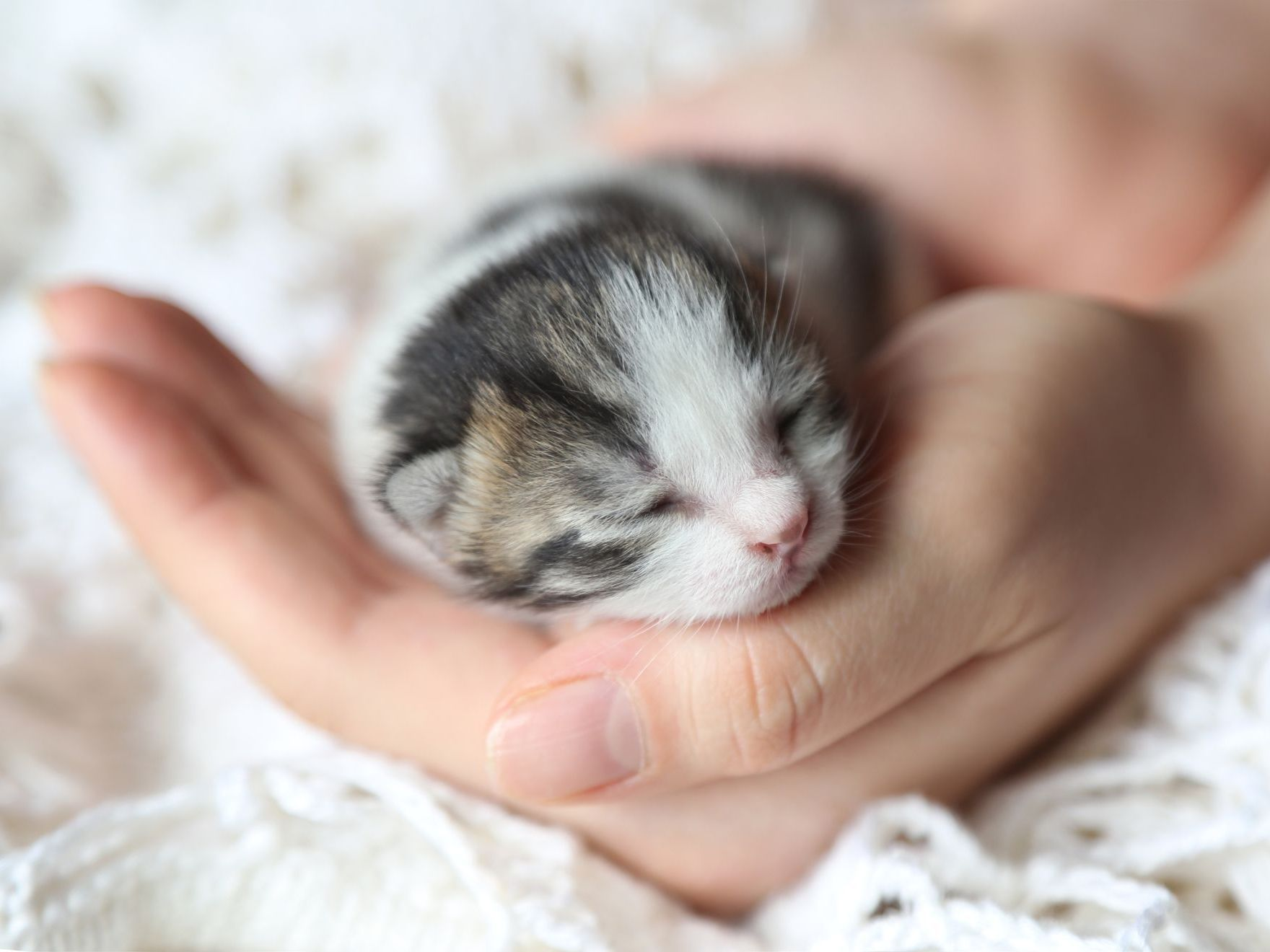
Navigating the first weeks after birth
At birth, newborn kittens are tiny and weak: too weak to walk in fact. Led by their sense of smell, they crawl to their mothers to feed soon after birth. This is important for kittens’ health: the colostrum (the first milk, which contains an extra-concentrated mix of immunity-boosting nutrients) they take in helps develop their immunity.
In the first three days of their life each kitten from a given litter will develop a preference for the teat they suckle from. They’ll stick with this as long as they are being fed by their mother. If for whatever reason kittens are not drinking their mother’s milk, a specially formulated babycat milk will be needed instead.
Your kitten’s neonatal stage
In the days following their birth, newborn kittens need a cosy warm (but not too warm) environment as they cannot regulate their own body temperature. They spend most of their time (about 90% of it in fact) sleeping, but there are some milestones to look out for when caring for kittens in their first weeks:
A newborn kitten’s eyes are closed at first. They usually start to open their eyes at around five days old.
This usually happens after or around the first week.
Anywhere between 10g and 20g is normal in the first weeks of a kitten’s life (it’s important to check against a kitten weight gain chart in the early weeks to ensure they continue to grow steadily).
Around two weeks in, kittens begin standing up (wobbly at first of course).
Their first milk teeth will be coming through—26 of them—and these won’t be replaced by adult teeth until they are around five to seven months old.
At four weeks old kittens will be walking, playing and starting to socialise with their siblings.
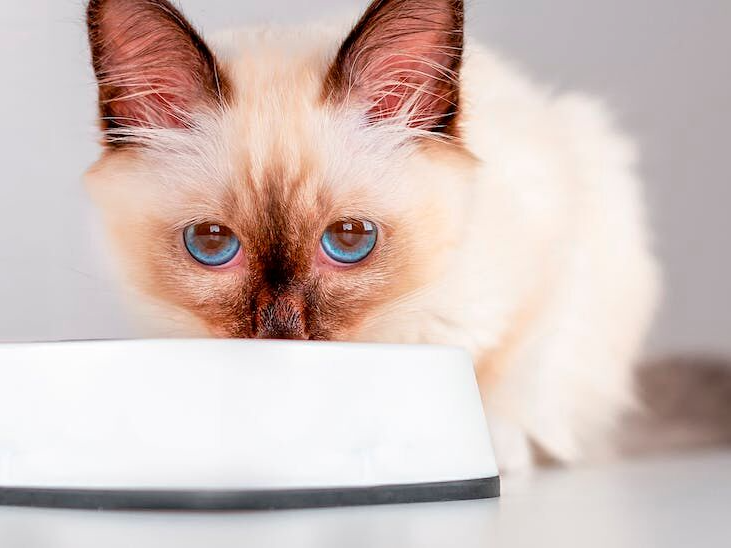
Your kitten at four weeks
Showing an interest in their mother’s solid food is the first sign that a kitten is entering the (gradual) weaning stage. This can start at around four weeks old and will usually be complete by the time your kitten is eight weeks old.
During the weaning phase, kittens transition from a milk-only diet to solid food. It’s best to do this gradually, starting with a rehydrated kibble that is mixed with warm water or milk. This will be easy for their miniature teeth to chew and for their tiny bodies to digest. Alternatively, a mousse-textured wet food will help ease the transition from suckling to solid food.
Your vet will provide detailed advice on the type of kitten food to choose and how to determine the right quantities for your kitten. At eight weeks, kittens should have completed the transition, no longer drinking their mother’s milk. They’ll be ready to make the move (gradually) onto an energy dense kitten food developed for their breed and stage of development.

An intense growth period
Those first fragile weeks will fly by and from two to four months, your kitten enters an intense growth stage. Their energy requirements are still important during these early weeks and they still need nearly twice as much as an adult cat. This paves the way for them to begin their most intense weight-gain period, which comes at four to five months, when they will be growing by around 100g a week.
Teething time
At five to seven months old, it’s teething time: your kitten’s 26 milk teeth should gradually be replaced by their 30 adult teeth. Chew toys specially developed for teething kittens may help ease any discomfort.
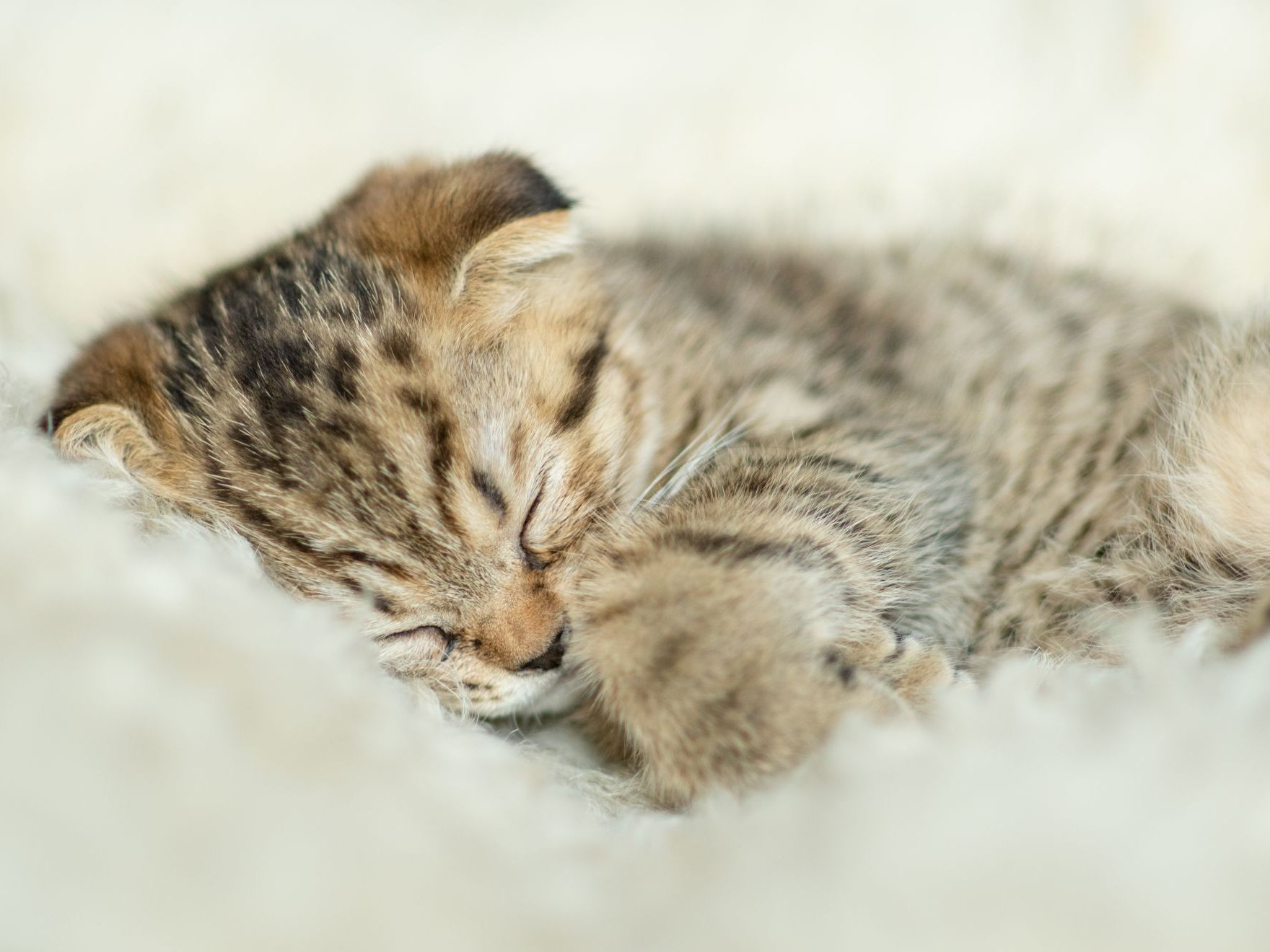
Sleeping patterns
Their sleeping patterns will start to be more like those of an adult cat: they will be snoozing for anything between 13 and 16 hours each day, depending on their breed (they’re still growing and that’s a tiring business) and in their waking hours, playing with their littermates.
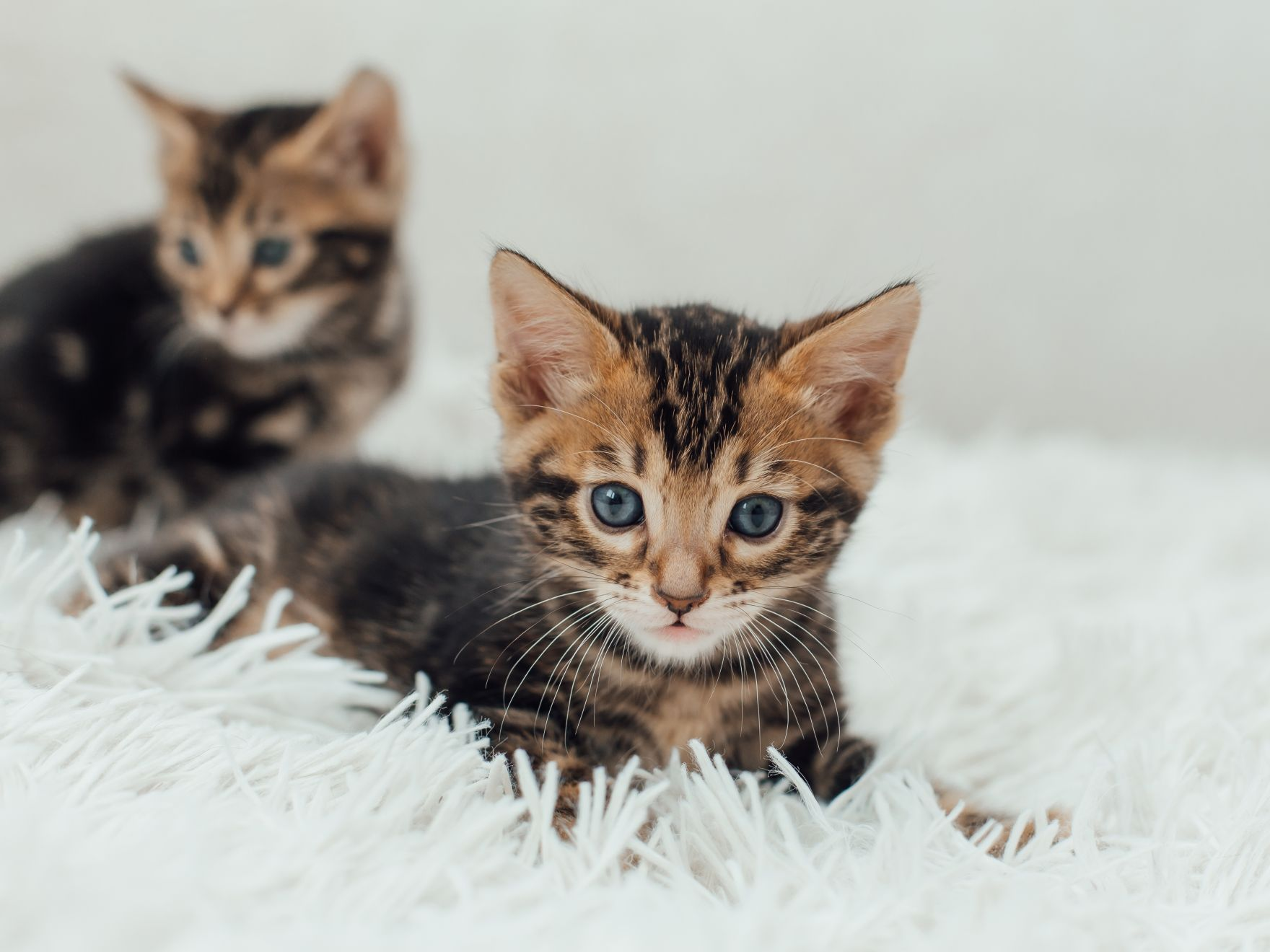
When does your kitten become an adult cat?
Around 12 months into their life (or 15 months in the case of Maine Coons), your kitten will become an adult cat and reach their full size. By being aware of these different early stages and what they need, you can help ensure they reach adulthood healthy and thriving.
As you watch your kitten grow into an adult cat, make sure you’re aware of their changing needs at each developmental stage. After all, you’ll want to be the best pet parent you can be for your feline companion.
Your kitten’s changing needs
As your kitten moves beyond the intense growth of kittenhood, their needs change and, as their owner, so do your responsibilities. You’ll need to keep a close eye on many aspects of their lifestyle to help ensure their continuing good health and well-being.
Maintaining the correct diet for your cat’s age, breed, activity level and whether or not they are spayed or neutered is vital: overweight cats are at risk of many health problems.
Exercise is important
Exercise is also a big part of keeping your kitten healthy—play activities including interactive toys for chasing or batting are fun for felines and humans alike, provide mental stimulation and help keep them in good physical shape.
Some breeds are more playful than others: you and your kitten will be able to figure that out together. Even if your kitten is on the calmer side, they will need plenty of attention and love from their owner—what a pleasure for both of you.
Socialisation and training
You’ll also want to think about kitten socialisation and training. They may be more independent than puppies, but kittens are certainly capable of learning (with a patient and consistent approach) to respond to their name and to live peacefully with the other animals and people in their home.
Your vet: your cat’s best resource
Kittens and cats should be registered with a veterinary practice. Choose someone you like and trust in your neighbourhood. Your cat’s vet will play a big role in their life—and yours. They will be a reliable source of advice in case of any questions on your kitten’s diet, health and wellbeing and behaviour.
You’ll need to stay on top of any vaccinations, with boosters sometimes needed for your kitten or cat.
And don’t forget that your kitten’s veterinary care will help pave the way for their adult health and getting them used to visiting the vet when they’re young will make visits easier throughout their life. Regular check-ups are important: once a year is a good starting point, but as your cat ages they will need to visit the vet more frequently, to ensure that any diseases are detected early and their impact minimised.
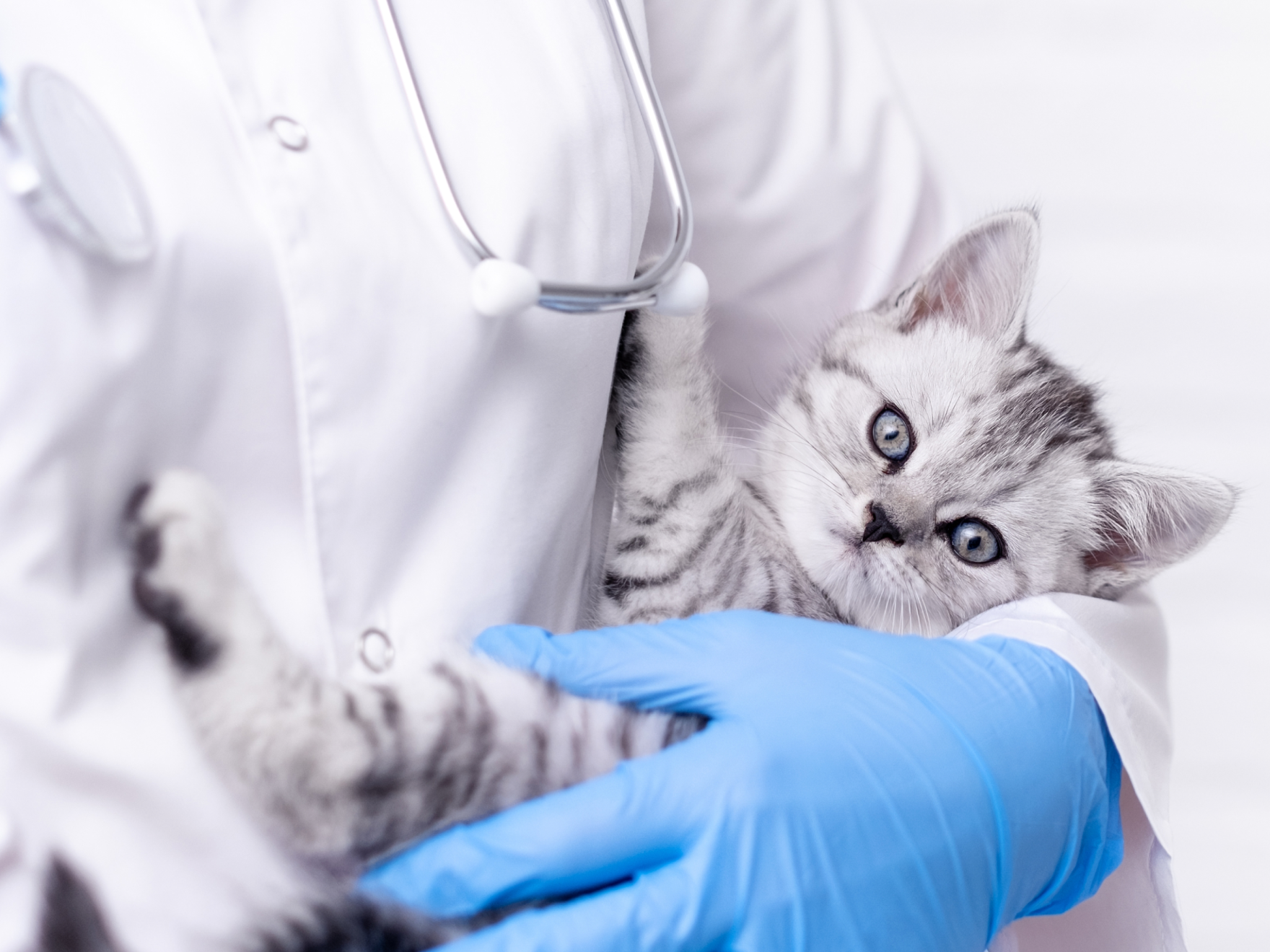
As your cat makes the transition from kitten to adult cat, your vet can advise you on ways to safeguard their health and well-being, covering everything from:
- Flea and tick control
- Spaying or neutering
- Deworming your kitten
- Keeping your kitten’s coat in the best condition
- Putting in place an efficient dental care routine
- Making sure vaccinations are kept up to date
- Advice on kitten and later cat food to ensure your pet’s optimal nutrition— remember that a balanced diet is one of the most important ways to safeguard your kitten’s health.
Getting a kitten is an exciting time, as you watch your new pet grow and discover the world. As their owner, you’re responsible for your kitten’s health and wellbeing, but with the right information about their development and their changes at your fingertips, you’ll be able to make sure you take great care of them from the start—setting them up for many healthy and contented years as part of your family.
